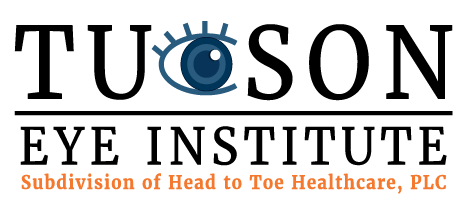Retinal Diseases and Injuries
The retina, located at the back of the eye, is the “light sensitive” layer at the back of the eyeball. In simple terms, the chief responsibility of this structure is to take focused light that strikes it and “convert” it into nerve impulses that can be “seen” by the brain.
Without a healthy retina to organize and transmit that visual information, your vision may deteriorate—and the damage may not always be reversible. As a result, it’s extremely important to identify and treat retinal diseases as early as possible.

Common Retinal Diseases
Some common retinal diseases and injuries include (but are not limited to):
- Macular degeneration. The center and most sensitive portion of the retina contains the macula, which is responsible for your central vision. Macular degeneration distorts, blurs, and sometimes blinds your central vision, though peripheral vision is usually unaffected. There’s no cure, but you may be able to slow its progress and make some lifestyle accommodates to help.
- Diabetic retinopathy. Excess blood sugar can damage the tiny blood vessels at the back of the eye, causing them to swell, black, and leak fluid. The resulting swelling may blur your vision, as well as damage the sensitive nerves that interpret and relay visual information back to the brain.
- Retinal tear / detachment. Retinas can tear if the vitreous (the clear gel that fills the middle of the eye) shrinks and pulls on the retina with enough force to tear it. In some cases, this can cause the fluid to leak through the tear and fill up behind the retina—ultimately detaching it. This almost always results in blindness unless corrected by surgery.
Symptoms of Eye Disease
The specific symptoms you may experience vary based on the specific disease or injury, including its severity. However, given the retina’s importance for visual processing, most conditions tend to affect or impair your ability to see clearly.
You may experience symptoms such as:
- Visual “floaters”
- Flashes
- Blurred vision
- Distorted or warped vision (almost like a funhouse mirror)
- Blind spots, which may worsen with time
These are all warning signs of a potential retinal disease or injury that requires immediate treatment. Do not underestimate them.
However, the unfortunate truth is that your vision may deteriorate slowly enough that you might not
What Should I Do?
Pay close attention to your eyesight. See your optometrist immediately if you notice any changes in your vision. Even if you don’t notice any changes, continue to schedule regular routine examinations with your optometrist (generally every 1-2 years). Screening tests may be able to identify the signs of retinal disease long before you do.

Get Professional Help!
At Tucson Eye Institute, we not only provide comprehensive eye exams and rigorous diagnostic testing for anyone who needs it, but also a wide range of treatment options for most retinal diseases. We will make sure you get the care you need so you can protect your vision.
To schedule an appointment with us today, please call (520) 585-5717.
Contact Us
Office Hours:
Monday - Friday
8:00AM - 5:00PM
By Appointment Only:
First Saturday of the month from 8:00AM - 2:00PM
